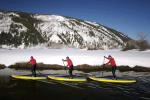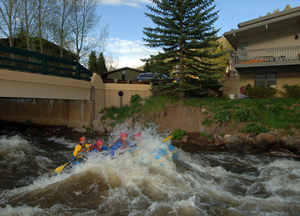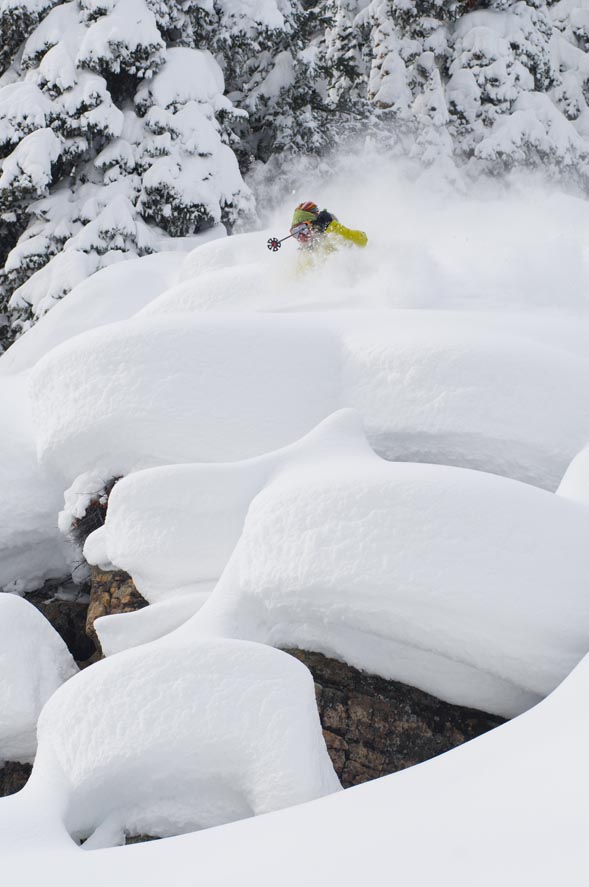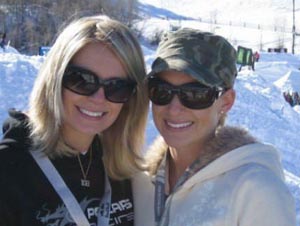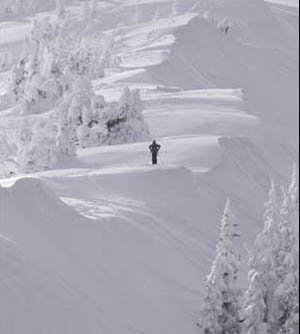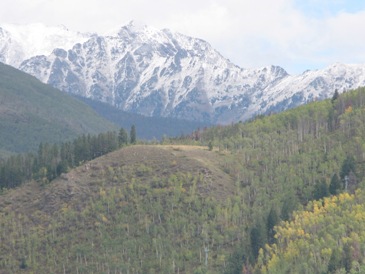
Ski-country congressmen split on climate-change bill, but will it really kill jobs?
September 14, 2009 —
What a difference 50 miles makes. That's about the distance between Vail and Eagle County's border with Garfield County, right about where drivers on I-70 head into Glenwood Canyon.
If you live on the Vail side of that divide, your congressman, Democrat Jared Polis, voted for climate-change legislation in June. If you live in energy-rich Garfield County, your congressman, Democrat John Salazar, voted against it because it would hit rural Coloradans in the wallet.
But a new report on the employment benefits of the House-passed climate change legislation (yet to be taken up by the Senate) provides some useful ammo for conservationists looking to shoot holes in the Republican – and conservative Democrat – mantra that the so-called Waxman-Markey bill is a jobs killer.
Produced by the American Council for an Energy-Efficient Economy and released last week by Denver-based Environment Colorado and the Southwest Energy Efficiency Project, the report is a bit laboriously entitled “Energy Efficiency in the American Clean Energy Security Act of 2009: Impacts of Current Provisions and Opportunities to Enhance the Legislation.”
It found that in Colorado alone, the American Clean Energy and Security Act (ACES) would create 7,100 new jobs by 2020 by improving the energy efficiency of new and existing buildings and spending $90 billion on renewable energy projects nationwide by 2025.
With the Senate back in session and about to take up deliberations on its own version, the report suggests changes to the legislation could increase the number of new jobs created in Colorado to 11,000 by 2020.
Those numbers would seem to run counter to the justifications of Colorado Republican lawmakers and blue-dog Democrat Salazar, who voted against the narrowly passed (219-212) House bill in June. Although it remains to be seen where the majority of new jobs would be created.
“While I strongly agree the issue of climate change must be addressed, this specific bill would have placed a disproportionate financial impact on individual households in Colorado’s Third Congressional District and, for that reason, I could not support it,” Salazar told RealVail.com recently.
Salazar’s 3rd Congressional District is largely rural, with heavy oil and gas production in the northwest and parts of the southwest. The San Luis Valley has seen considerable renewable energy development.
Salazar was responding to a League of Conservation Voters television ad campaign blasting him for his no vote.
The report also looks at potential consumer savings, concluding the House version would save Colorado households an average of $158 per household in 2020, with that number jumping to $218 per year by 2020 if the Senate version strengthens energy efficiency provisions.
“Energy savings is a key component of our New Energy Economy,” Tom Plant, director of the Governor’s Energy Office, said in a release accompanying the report. “Efforts to make our buildings and homes more energy efficient are creating green jobs in Colorado. Increased investment in efficiency would put more Coloradans to work building an energy smart state while saving them money on energy costs.”
The report suggests Congress strengthen the Energy Efficiency Resource Standard (EERS) in the bill to a 10-percent requirement from the current House version of 5 percent with an option 3-percent increase. EERS provides incentives and financial assistance to utility customers to make homes and businesses more energy efficient.
Jobs creation is key arguments in the ongoing battle between Colorado Gov. Bill Ritter's "New Energy Economy" and backers of the oil and gas boom on the state's Western Slope over the last decade.
It's an interesting dichotomy, though, the takes by Polis and Salazar, both of whom represent ski-resort economies with a great deal at stake in the global warming debate.
Of course, those resorts have often cater to guests in the energy extraction industries, who argue just as vociferously that they create even more high-paying jobs on the Western Slope.
![]() Comment on "Ski-country congressmen split on climate-change bill, but will it really kill jobs?" using the form below
Comment on "Ski-country congressmen split on climate-change bill, but will it really kill jobs?" using the form below





